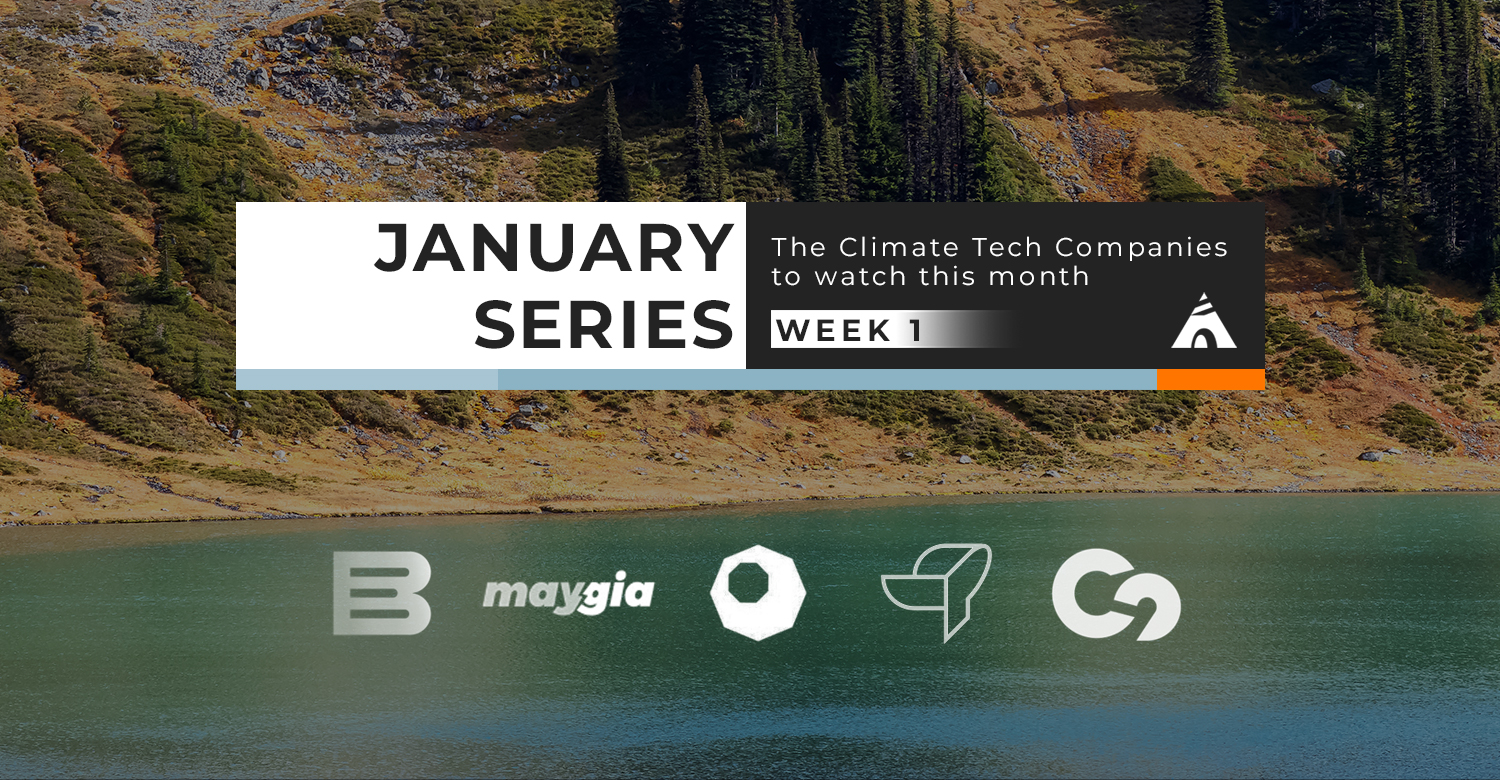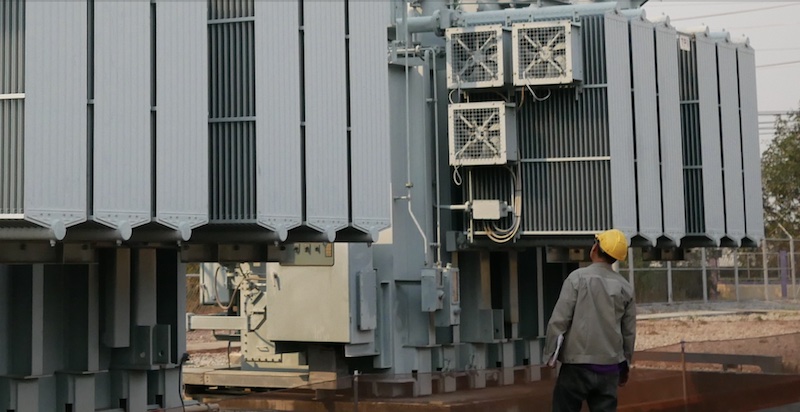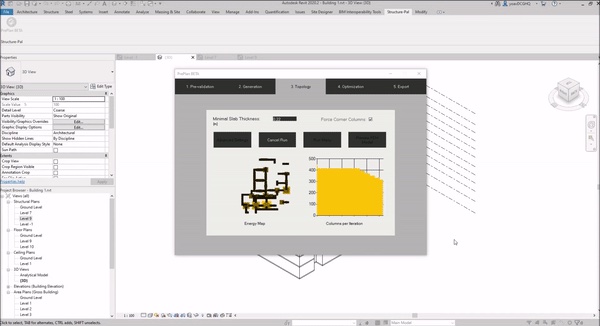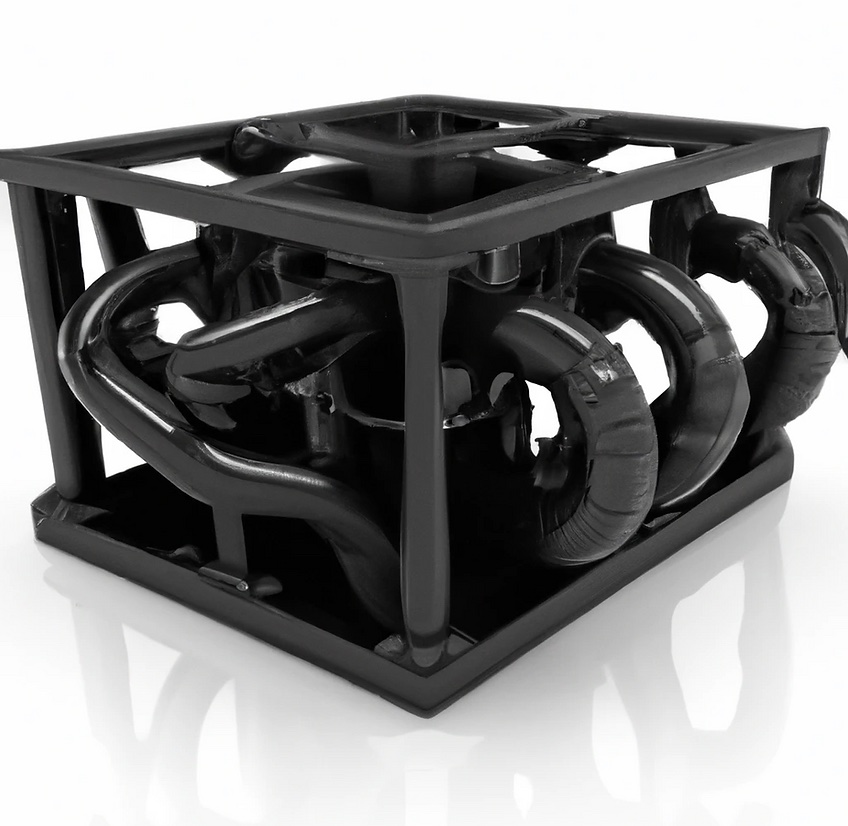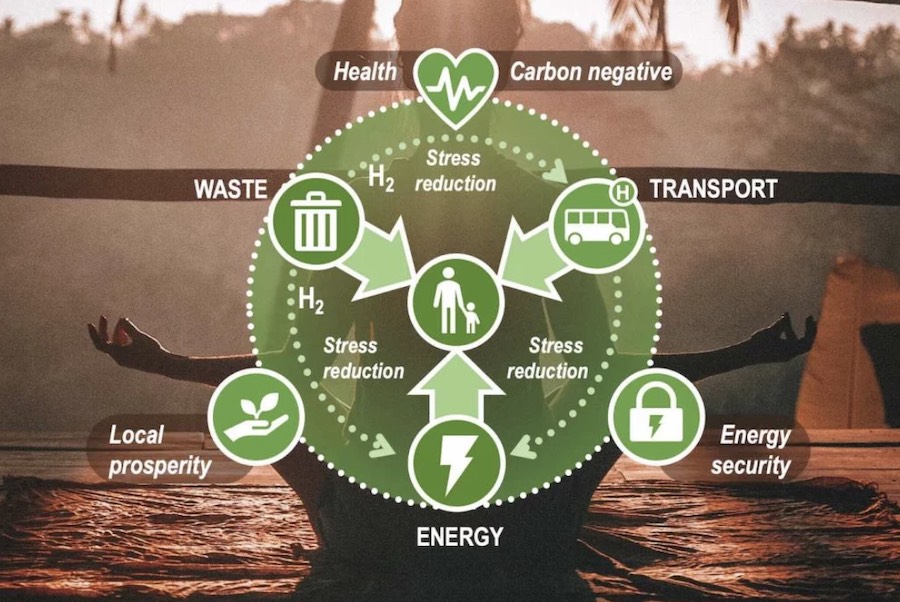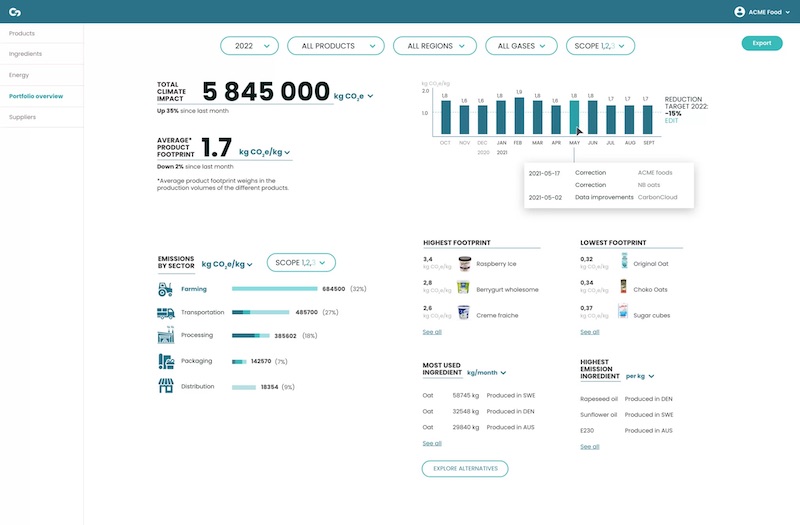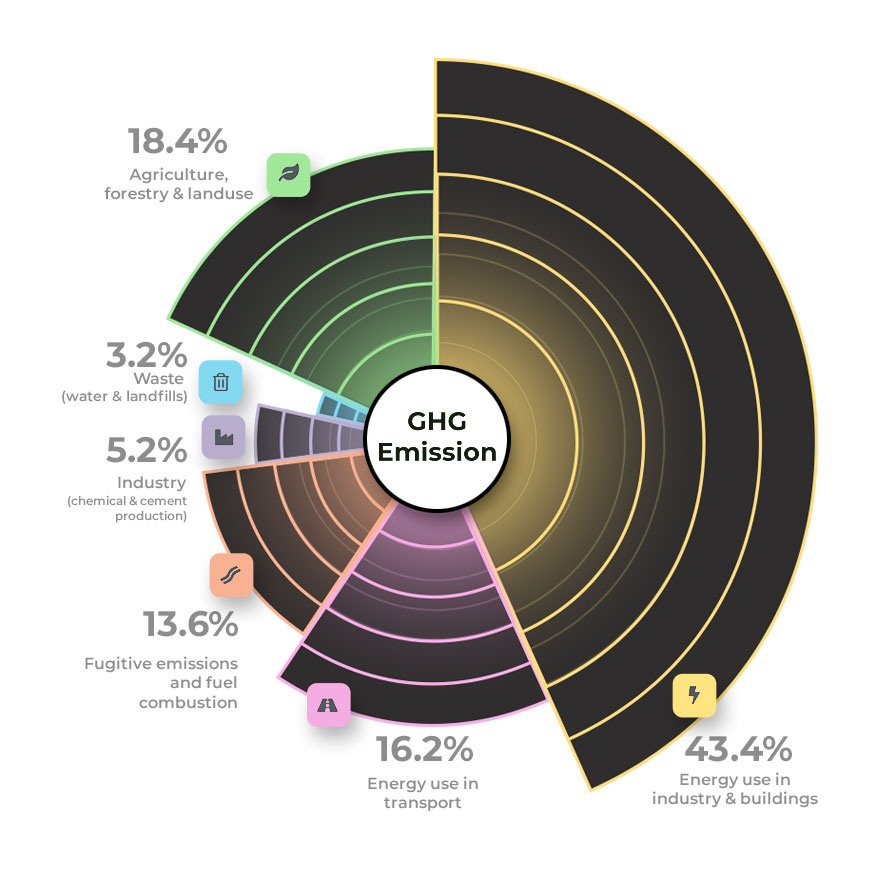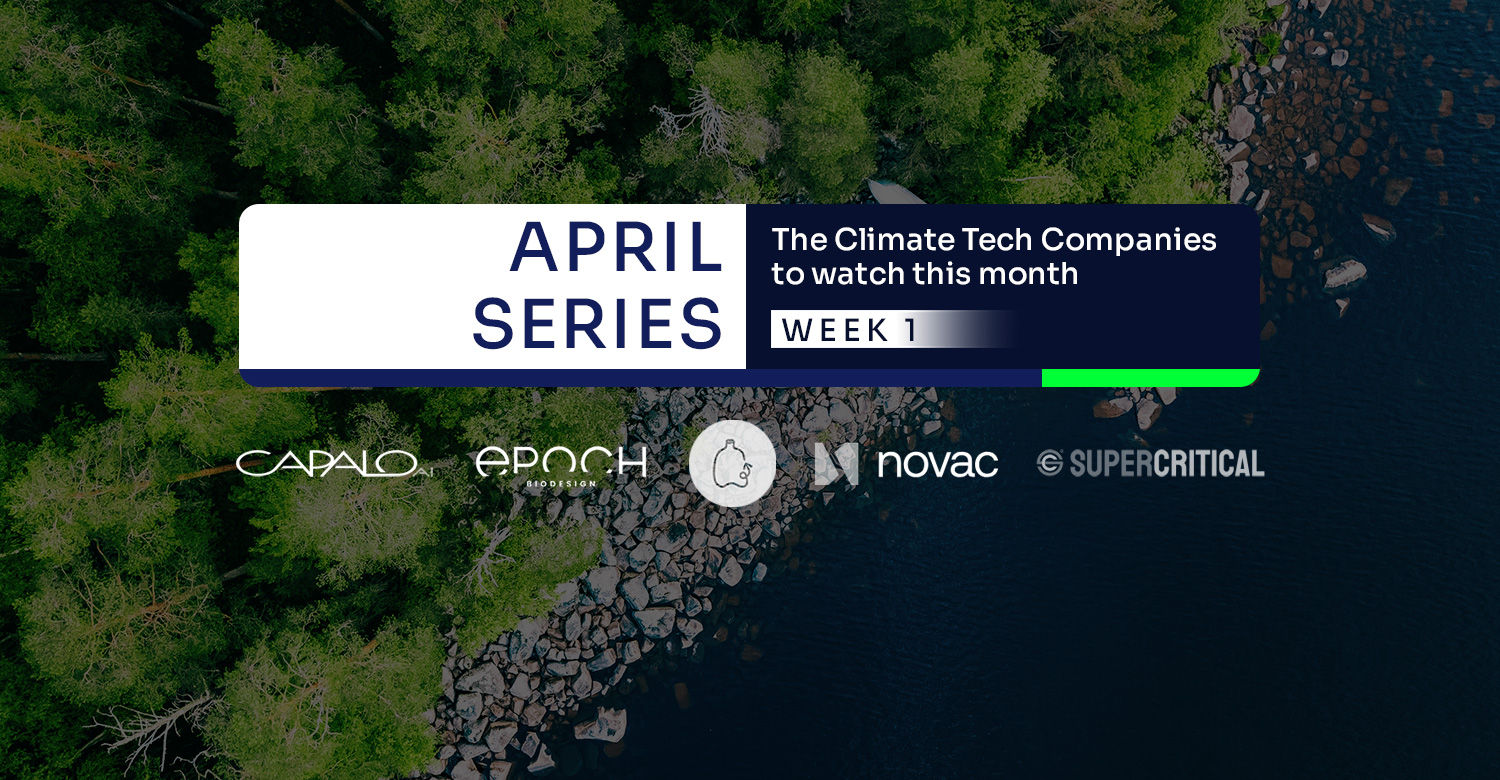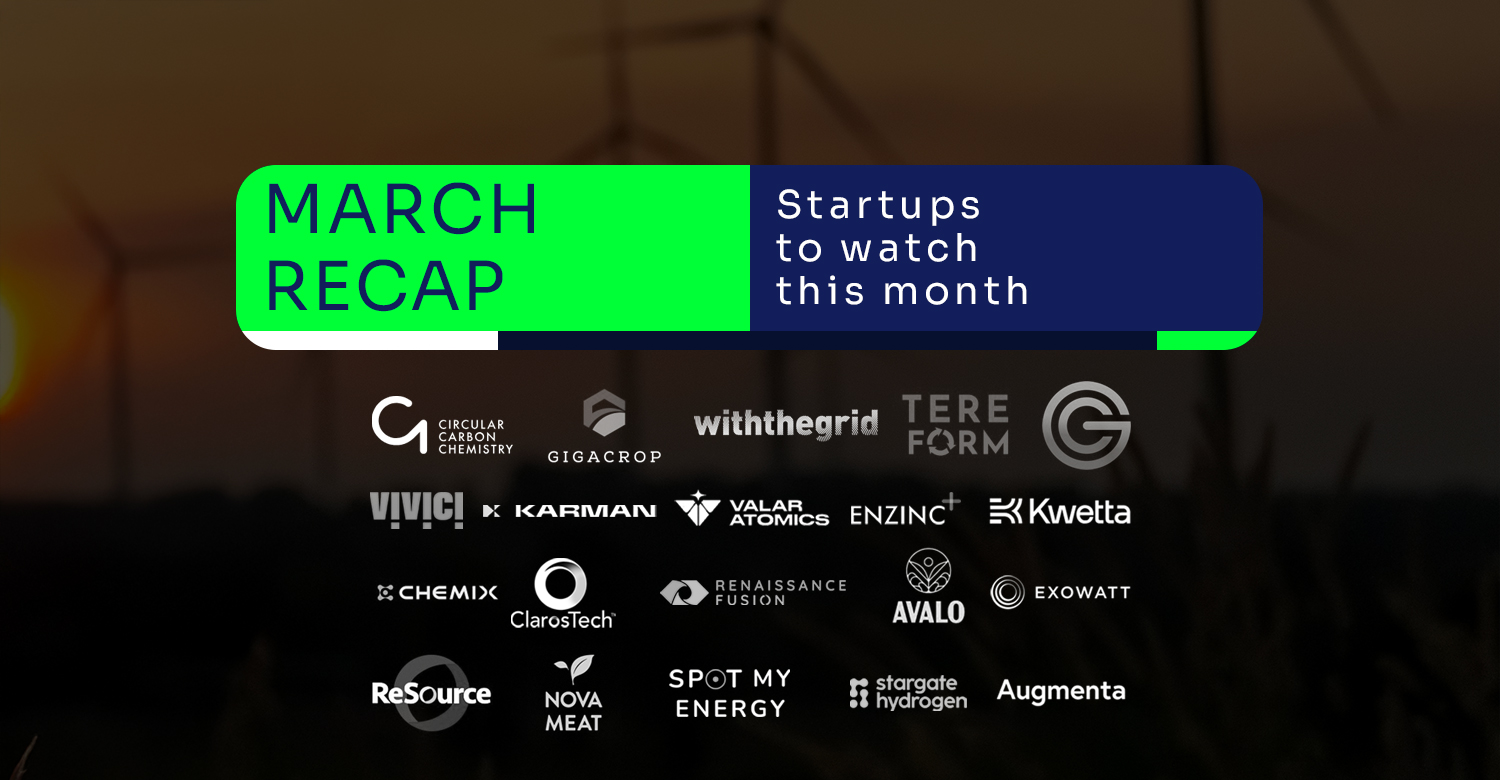January Week 1, 2023: In this monthly series, we highlight 5 climate tech startups to watch by featuring the incredible startups, companies, or projects that are leading the fight against the climate crisis.
Each month, we add these startups to our running list, which we have categorized based on fuel emission sector data from the most detailed, recent data SBC could identify from the World Resource Institute in 2016.
This initiative from Startup Basecamp aims to support founders by giving them access to networking and exposure opportunities that help them to scale and finance their climate tech solutions.
Do not hesitate to join our collective movement by requesting your membership.
With care,
Guillaume and the SBC TEAM,
Energy use in Industry and Buildings
Founded:
2019 – Copenhagen
Founder:
Golam Sadeghnia
Elevator Pitch:
Okto Grid offers transformer monitoring made simple.
Problem they solve:
We make it simple to digitalise transformers in order to fuel the electrification of society.
Impact:
Okto Grid digitalises the electrical grid to support a sustainable energy transition.
Stage:
Seed
Interested in Okto Grid?
To learn more about their technology or get in touch, see here.
Industry
Founded:
2019 – Haifa, Israel
Founder:
Ionathan Lazovski
Elevator Pitch:
Structure-Pal eliminates concrete over-design with A.I
Problem they solve:
Presently, the concrete industry constitutes 11% of overall CO2 emissions world-wide. Concrete is the most common material for building structure and there is an overall consensus in the construction industry that concrete structures tend to be over-designed, from various reasons such as lack of optimization tools, tight design time schedules, lack of engineers or financial motivation to create a lean structure.
All of the above leads to loss of funds for the client, high levels of CO2 emissions and friction between all stake holders that take part in designing our buildings.
Impact:
Structure Pal is a startup with a mission to provide civil engineers with the abilities to reduce concrete volume in their design using their native tools along with a powerful novel AI optimization engine. Structure Pal combines Climate-tech and construction-tech under one roof, reducing construction cost and CO2 emissions in great numbers.
Stage:
Undisclosed
Interested in Structure-Pal?
If you are interested in learning more, see here.
Waste (water & landfills)
Founded:
2022 – Tel Aviv, Israel
Founder:
Yair Korenblit
Elevator Pitch:
Maygia is bringing to market a technology that will lower the cost and carbon emissions of treating industrial wastewater and provide a new solution for turning salty and contaminated water into drinking water using hydrogen as the energy source.
Problem they solve:
Maygia’s solution is essentially a box that replaces the old electricity consuming boxes. Our box is fed hydrogen and wastewater or salty water and hydrogen and no electricity. The output of this box is clean water, waste, and electricity. As a result of not using electricity and outputting electricity the technology can reduce cost and carbon emissions for a variety of customers around the globe.
Impact:
The benefits of such a technology are varied and dependent on the customer and may include reduced costs, reduced emissions, reduced maintenance, reduced sized, backup power, time shifting operations, and more.
Stage:
Pre-Seed
Interested in Maygia?
To learn more about this company, see here.
4. Boson Energy
Founded:
2008 – Luxembourg, Luxembourg
Founder:
Jan Grimbrandt
Elevator Pitch:
Our mission is to bring clean air, energy and molecules to future generations by solving the world’s waste problem
Problem they Solve:
Circular hydrogen from waste and biomass is the most cost efficient way to achieve carbon-negative hydrogen. Landfills emit the greenhouse gas methane and waste incineration emits CO2 mixed into its flue gases. Capturing that CO2 is very expensive. Boson captures the CO2 straight from the thermochemical process, allowing for a carbon-negative footprint at an attractive cost.
Conventional fossil hydrogen from natural gas has a big carbon footprint and carbon capture can reduce that, but not more. Hydrogen from electrolysis with renewable electricity has a very low carbon footprint, but it is still positive. As a consequence, neither will reverse carbon emissions by being carbon-negative.
Impact:
Hydrogen is key to move away from polluting and inefficient combustion-based energy – towards clean and efficient electrification. Distributed thermochemical recycling allows Boson Energy to deliver high and predictable volumes of local hydrogen. This at a quality and price that can compete head-on with diesel and fossil hydrogen, while at the same time radically cutting emissions and creating additional sector coupling synergies, like grid-independent hydrogen-powered fast charging, green methanol, urea, etc.
Stage:
Undisclosed
Interested in Boson Energy?
If you are interested in learning more, see here.
5. CarbonCloud
Location:
2019 – Gothenburg, Sweden
Founder:
David Bryngelsson and Mikael Tönnberg
Elevator Pitch:
CarbonCloud is a research-based food-tech startup with a disruptive web-based SaaS.
Problem They Solve:
The food system has developed over centuries into a complex network with millions of nodes. The network has pathways to communicate price and quality; the food network has no pathways to exchange climate performance information. Acting on climate performance today is an information problem that depends on 2 billion people exchanging climate performance seamlessly. Problem solved.
Impact:
Food is 25% of carbon emissions. We’re in the business of lowering that.
Stage:
Seed
Want to learn more about CarbonCloud?
To learn more about their technology or get in touch see here.
How do these startups fit in with all the others we have looked at?
Check out our running list of the 350+ climate tech startups to watch we have featured.
